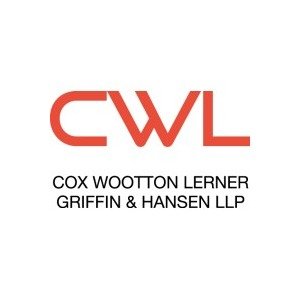Best Acquisition / Leveraged Finance Lawyers in Honolulu
Share your needs with us, get contacted by law firms.
Free. Takes 2 min.
List of the best lawyers in Honolulu, United States
About Acquisition / Leveraged Finance Law in Honolulu, United States
Acquisition and leveraged finance law involves the legal processes and financial structuring related to the buying or merging of businesses using significant amounts of borrowed capital. In Honolulu, as part of the State of Hawaii, acquisition and leveraged finance often relate to the unique mix of local enterprises, real estate, hospitality, and tourism businesses. The process requires careful legal oversight to structure deals, assess risk, comply with federal and state regulations, and protect the interests of buyers, sellers, lenders, and other stakeholders.
Why You May Need a Lawyer
Acquisition and leveraged finance transactions are complex and involve substantial legal, financial, and operational risks. Common situations where legal assistance is important include:
- Purchasing or merging with another business in Honolulu
- Seeking bank loans or other financing to fund an acquisition
- Negotiating terms of credit agreements or loan documentation
- Performing due diligence on a business or its assets
- Resolving disputes that arise during or after a transaction
- Ensuring compliance with state and federal lending laws
- Protecting intellectual property, real property, or other assets involved in a deal
- Structuring a deal to minimize tax exposure and regulatory risk
Local Laws Overview
Acquisition and leveraged finance transactions in Honolulu are governed by both federal and Hawaii state laws. Key legal considerations include:
- Hawaii Revised Statutes: These statutes cover commercial transactions, secured transactions under Article 9 of the Uniform Commercial Code, lender liability, and more.
- State Licensing and Approval Requirements: Certain industries, such as hospitality and real estate, may require specific permits, licenses, or regulatory approvals for acquisitions to proceed.
- Recording and Taxation: Real estate transfers and corporate ownership changes may trigger transfer taxes, excise taxes, or recording fees unique to Hawaii.
- Federal Regulations: Transactions may also be subject to national banking, securities, and antitrust laws, in addition to local requirements.
- Environmental and Cultural Laws: Hawaii’s unique environmental and cultural resources require additional diligence and permitting, especially for real estate-heavy deals.
Close legal review is necessary to ensure that transactions are properly structured and compliant with all applicable Honolulu and Hawaii regulations.
Frequently Asked Questions
What is acquisition finance?
Acquisition finance refers to the funding businesses use to purchase another company, usually through a combination of equity and external debt.
What does leveraged finance mean?
Leveraged finance typically involves borrowing capital, often by using the target company’s assets as collateral, to fund an acquisition or expansion.
How does leveraged finance work in Honolulu?
Honolulu-based transactions must comply with Hawaii’s commercial laws, local licensing, and sometimes unique environmental or cultural regulations, in addition to standard financial structuring.
Who are the key parties in an acquisition or leveraged finance transaction?
Key parties include buyers, sellers, lenders, legal counsel for each party, financial advisors, and often regulatory or governmental authorities.
What are the main risks in leveraged finance deals?
Typical risks include misvaluation of assets, hidden liabilities, regulatory non-compliance, financing risks, litigation exposure, and post-transaction integration issues.
Do I need local legal counsel for an acquisition in Honolulu?
Yes, because local Hawaii laws and customary business practices can have a significant impact on the structure and success of your transaction.
Can I use out-of-state lenders for a Honolulu-based acquisition?
Generally yes, but out-of-state lenders must comply with Hawaii’s licensing laws, and both borrower and lender need to follow state legal requirements for documentation and collateral.
Are there special regulations for foreign investors in Honolulu?
Foreign investment may be subject to federal reporting and review and certain industries may have additional restrictions or disclosure requirements at the state level.
How are disputes typically resolved in acquisition finance deals?
Most agreements include dispute resolution clauses such as arbitration or mediation, but if these fail, disputes may be handled by Hawaii state or federal courts.
What should I look for in an acquisition finance attorney in Honolulu?
Look for an attorney or firm experienced in Hawaii acquisition finance, familiar with both local and federal law, and with a proven track record in structuring and closing similar deals.
Additional Resources
For more guidance and resources regarding acquisition and leveraged finance in Honolulu, consider reaching out to:
- Hawaii State Bar Association - Business Law Section
- Hawaii Department of Commerce and Consumer Affairs (DCCA)
- Chamber of Commerce Hawaii
- Federal and state banking regulators (Hawaii Division of Financial Institutions, Federal Reserve, FDIC)
- Local economic development organizations
These organizations can provide information, regulatory updates, attorney referrals, and other support.
Next Steps
If you are planning or considering a transaction involving acquisition or leveraged finance in Honolulu, it is important to consult with a qualified local attorney. Gather all relevant documents such as letters of intent, term sheets, financing agreements, business financials, and any correspondence with lenders or regulators. Reach out to attorney offices specializing in business acquisitions or commercial finance in Honolulu, schedule an initial consultation, and be prepared to discuss your goals and concerns in detail. Prompt legal advice can help you avoid costly pitfalls and ensure your transaction complies with all legal requirements.
Lawzana helps you find the best lawyers and law firms in Honolulu through a curated and pre-screened list of qualified legal professionals. Our platform offers rankings and detailed profiles of attorneys and law firms, allowing you to compare based on practice areas, including Acquisition / Leveraged Finance, experience, and client feedback.
Each profile includes a description of the firm's areas of practice, client reviews, team members and partners, year of establishment, spoken languages, office locations, contact information, social media presence, and any published articles or resources. Most firms on our platform speak English and are experienced in both local and international legal matters.
Get a quote from top-rated law firms in Honolulu, United States — quickly, securely, and without unnecessary hassle.
Disclaimer:
The information provided on this page is for general informational purposes only and does not constitute legal advice. While we strive to ensure the accuracy and relevance of the content, legal information may change over time, and interpretations of the law can vary. You should always consult with a qualified legal professional for advice specific to your situation.
We disclaim all liability for actions taken or not taken based on the content of this page. If you believe any information is incorrect or outdated, please contact us, and we will review and update it where appropriate.













